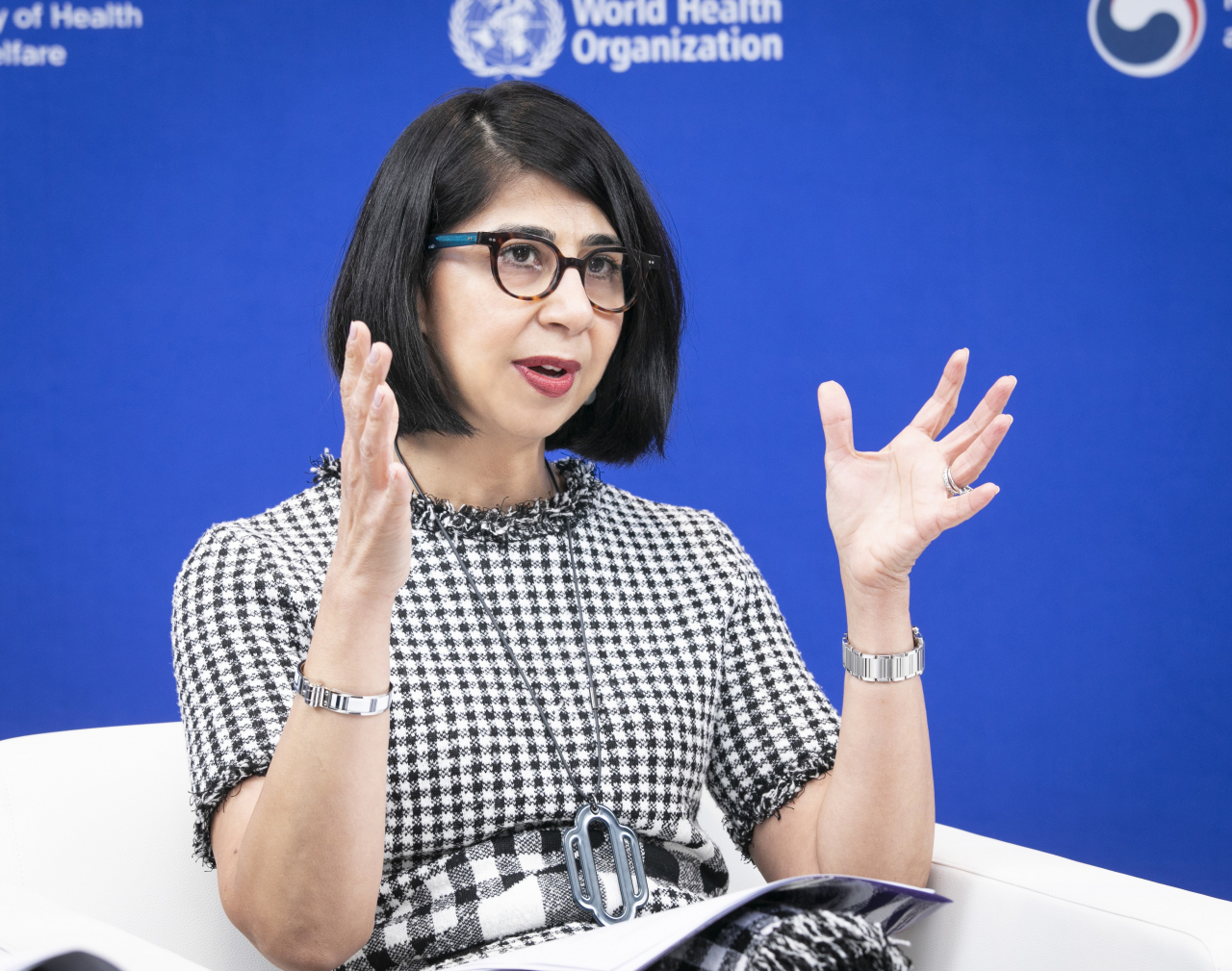[Herald Interview] ‘Biopharmas in midst of manufacturing revolution’
Merck Life Science committed to aiding biomanufacturing transition of S. Korean companies, top executive says
By Kan Hyeong-wooPublished : Nov. 2, 2022 - 16:13

As biopharmaceutical companies across the globe are undergoing revolutionary changes in bioprocessing, Merck Life Science appears committed to helping Korean companies stay ahead of the game.
Meeta Gulyani, head of strategy, business development and sustainability at Merck Life Science, told The Korea Herald last week that the factory of the future features connected, automated and digitized manufacturing.
“All of this is to say that we are going to try to increase the speed of manufacturing so we can get to patients faster, lower the cost and increase the reliability. We are heavily invested in making this come to reality for the biopharmaceutical industry,” said Gulyani in an interview on the sidelines of the World Bio Summit in Seoul on Oct. 26.
Speaking on the Korean biotech industry, Gulyani noted that she is seeing the country’s drugmakers moving from producing biosimilar products to creating their own innovative molecules and the development of novel modalities, such as mRNA, cell and gene therapy and viral vector.
“Our expertise is to provide technology partnership to enable this. For me, it’s absolutely the right shift and I believe we can be real partners to them as they move towards this journey,” she said.
Gulyani took the example of Merck’s M Lab Collaboration Center in Songdo, Incheon. Established in 2016, the M Lab Collaboration Center has trained over 1,000 researchers and engineers to help them optimize their own manufacturing processes while supporting over 100 customer programs, including Samsung Biologics, Celltrion and SK Bioscience.
As for the reasons behind Merck’s commitment to expanding its presence in Korea, the official underscored three factors -- the government-related macro factors, economic factors and the start of a developing ecosystem.
Regarding the government-related aspects, she pointed to Seoul’s political stability, favorable trade policy, protection of intellectual property and well-established regulatory framework.
Gulyani said Korea having the largest bioreactor capacity and being a leading provider of finished biopharmaceutical products in the Asia-Pacific region make the country are “very attractive market conditions” for Merck. She added that the country’s operational considerations, such as infrastructure, logistics and speed, all contribute to the positive economic factors.
“Korea’s willingness to foster and begin full-fledged support to the (pharmaceutical) and bio industries is tremendous. The talent pool is there,” she said, pointing to the establishment of the Korea National Institute for Bioprocessing Research and Training and the country’s designation as a global biomanufacturing training hub by the World Health Organization.
As Merck’s mission to impact health and life with science aligns with the direction Korea is headed, Gulyani emphasized the importance of Korea’s role in achieving future goals for humanity together.
“The simple way to put it is that we aim to be embedded deeper in the innovation ecosystem in Korea,” she said.







![[Graphic News] More Koreans say they plan long-distance trips this year](http://res.heraldm.com/phpwas/restmb_idxmake.php?idx=644&simg=/content/image/2024/04/17/20240417050828_0.gif&u=)
![[KH Explains] Hyundai's full hybrid edge to pay off amid slow transition to pure EVs](http://res.heraldm.com/phpwas/restmb_idxmake.php?idx=644&simg=/content/image/2024/04/18/20240418050645_0.jpg&u=20240419100350)








![[KH Explains] Hyundai's full hybrid edge to pay off amid slow transition to pure EVs](http://res.heraldm.com/phpwas/restmb_idxmake.php?idx=652&simg=/content/image/2024/04/18/20240418050645_0.jpg&u=20240419100350)

![[Today’s K-pop] Illit drops debut single remix](http://res.heraldm.com/phpwas/restmb_idxmake.php?idx=642&simg=/content/image/2024/04/19/20240419050612_0.jpg&u=)